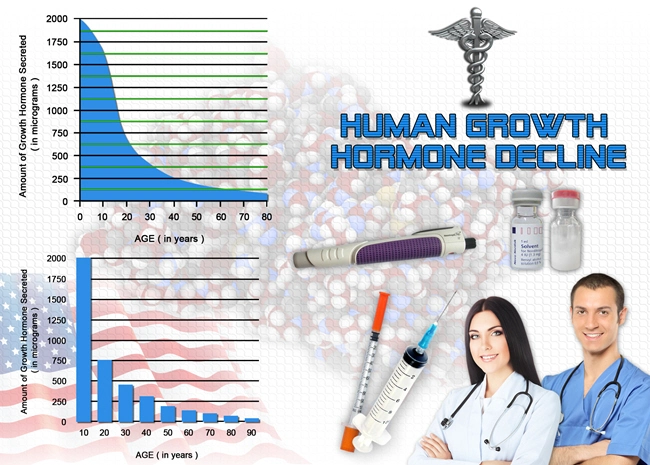
Introduction
Escitalopram, a widely prescribed selective serotonin reuptake inhibitor (SSRI), has become a cornerstone in the treatment of depression and anxiety disorders among American males. However, the efficacy of escitalopram can vary significantly from one individual to another, often influenced by genetic factors. This article delves into the genetic underpinnings that may affect how American males respond to escitalopram, providing a comprehensive overview of the current understanding in this field.
The Role of Pharmacogenomics
Pharmacogenomics, the study of how genes affect a person's response to drugs, plays a pivotal role in understanding the variable responses to escitalopram. Genetic variations can influence the metabolism, efficacy, and side effects of the drug. For American males, understanding these genetic factors can lead to more personalized and effective treatment plans.
Key Genetic Markers
Several genetic markers have been identified that may impact the response to escitalopram. The most notable include variations in the genes encoding for the serotonin transporter (SLC6A4), the cytochrome P450 enzymes (CYP2C19 and CYP2D6), and the serotonin receptor (HTR2A).
- **SLC6A4 Gene**: The serotonin transporter gene, SLC6A4, is crucial as it directly affects the reuptake of serotonin, the primary target of escitalopram. Variations in this gene, such as the short (S) and long (L) alleles of the serotonin transporter-linked polymorphic region (5-HTTLPR), can influence treatment outcomes. American males with the S/S genotype may experience a less robust response to escitalopram compared to those with the L/L genotype.
- **CYP2C19 and CYP2D6 Genes**: The cytochrome P450 enzymes, encoded by CYP2C19 and CYP2D6 genes, are responsible for metabolizing escitalopram. Genetic polymorphisms in these genes can lead to poor, intermediate, extensive, or ultra-rapid metabolism of the drug. American males with poor metabolizer phenotypes may experience higher drug concentrations and increased risk of side effects, while ultra-rapid metabolizers might not achieve therapeutic levels.
- **HTR2A Gene**: The HTR2A gene, which encodes for the serotonin 2A receptor, also plays a role in the response to SSRIs. Variations in this gene can affect the efficacy of escitalopram. Certain polymorphisms have been associated with a better response to treatment in some American males.
Clinical Implications
Understanding the genetic factors that influence escitalopram response can have significant clinical implications for American males. Genetic testing can help identify those who may benefit from alternative treatments or adjusted dosages. This personalized approach can enhance treatment outcomes and reduce the trial-and-error period often associated with finding the right medication.
Challenges and Future Directions
Despite the advancements in pharmacogenomics, challenges remain. The complexity of genetic interactions and the influence of environmental factors mean that genetic testing alone cannot predict treatment response with complete accuracy. Future research should focus on integrating genetic data with clinical and environmental factors to develop more comprehensive predictive models.
Moreover, increasing awareness and accessibility to genetic testing among American males can empower individuals to take a more active role in their mental health treatment. As the field of pharmacogenomics continues to evolve, it holds the promise of revolutionizing how mental health disorders are treated.
Conclusion
The response to escitalopram among American males is significantly influenced by genetic factors. By understanding these genetic variations, healthcare providers can tailor treatments to improve efficacy and minimize side effects. As research progresses, the integration of genetic testing into routine clinical practice could transform the landscape of mental health care, offering hope for more effective and personalized treatments for depression and anxiety disorders.
Contact Us Today For A Free Consultation
Dear Patient,
Once you have completing the above contact form, for security purposes and confirmation, please confirm your information by calling us.
Please call now: 1-800-380-5339.
Welcoming You To Our Clinic, Professor Tom Henderson.

- Exploring the Relationship Between Escitalopram and Weight Changes in American Males [Last Updated On: February 16th, 2025] [Originally Added On: February 16th, 2025]
- Exploring the Therapeutic Potential of Escitalopram for Panic Disorders in American Males [Last Updated On: February 24th, 2025] [Originally Added On: February 24th, 2025]
- Unveiling the Mechanism: Understanding the Role of Escitalopram in Altering Serotonin Levels in the Brain [Last Updated On: March 2nd, 2025] [Originally Added On: March 2nd, 2025]
- Exploring the Cognitive Effects of Escitalopram: Impacts on Memory, Attention, and Executive Function in Mood Disorders [Last Updated On: March 3rd, 2025] [Originally Added On: March 3rd, 2025]
- Escitalopram Use During Pregnancy: Benefits and Risks Explored [Last Updated On: March 4th, 2025] [Originally Added On: March 4th, 2025]
- Understanding Escitalopram: Experiences of American Males with Depression and Anxiety Treatment [Last Updated On: March 5th, 2025] [Originally Added On: March 5th, 2025]
- Understanding Escitalopram's Role in Treating Adolescent Depression and Anxiety [Last Updated On: March 6th, 2025] [Originally Added On: March 6th, 2025]
- The Pharmacological Profile of Escitalopram: A Potent SSRI for Depression and Anxiety [Last Updated On: March 7th, 2025] [Originally Added On: March 7th, 2025]
- Escitalopram's Efficacy in Treating OCD Among American Males: Benefits and Considerations [Last Updated On: March 8th, 2025] [Originally Added On: March 8th, 2025]
- Safely Withdrawing from Escitalopram: A Guide for American Men on SSRI Discontinuation [Last Updated On: March 8th, 2025] [Originally Added On: March 8th, 2025]
- Escitalopram: Efficacy and Side Effects in Antidepressant Therapy for American Men [Last Updated On: March 9th, 2025] [Originally Added On: March 9th, 2025]
- Exploring Escitalopram: Key Drug Interactions to Avoid for American Males [Last Updated On: March 12th, 2025] [Originally Added On: March 12th, 2025]
- Exploring the Impact of Escitalopram on Mental Health in American Males: A Nursing Perspective [Last Updated On: March 13th, 2025] [Originally Added On: March 13th, 2025]
- Exploring the Safety of Escitalopram in Elderly American Males: Essential Precautions [Last Updated On: March 15th, 2025] [Originally Added On: March 15th, 2025]
- Escitalopram Pharmacokinetics in American Males: Optimizing Treatment for Depression and Anxiety [Last Updated On: March 18th, 2025] [Originally Added On: March 18th, 2025]
- Escitalopram's Impact on American Males: Case Studies in Mental Health Improvement [Last Updated On: March 18th, 2025] [Originally Added On: March 18th, 2025]
- Escitalopram Efficacy in Treating PTSD Among American Males: Benefits and Considerations [Last Updated On: March 18th, 2025] [Originally Added On: March 18th, 2025]
- Escitalopram's Role in Treating Social Phobia in American Males: Efficacy and Considerations [Last Updated On: March 18th, 2025] [Originally Added On: March 18th, 2025]
- Escitalopram Overdose: Symptoms, Actions, and Prevention Strategies [Last Updated On: March 18th, 2025] [Originally Added On: March 18th, 2025]
- Strategies to Boost Escitalopram Adherence in American Males: Education, Technology, and Support [Last Updated On: March 18th, 2025] [Originally Added On: March 18th, 2025]
- Escitalopram: Mechanism, Efficacy, and Safety for American Males with Depression and Anxiety [Last Updated On: March 19th, 2025] [Originally Added On: March 19th, 2025]
- Escitalopram: American Men's Experiences with Depression and Anxiety Treatment [Last Updated On: March 20th, 2025] [Originally Added On: March 20th, 2025]
- Escitalopram's Impact on Sleep: Insights for American Male Patients [Last Updated On: March 21st, 2025] [Originally Added On: March 21st, 2025]
- Escitalopram's Journey: From Lab to Lifeline for American Males' Mental Health [Last Updated On: March 21st, 2025] [Originally Added On: March 21st, 2025]
- Monitoring Liver Function in American Males on Escitalopram: Essential Guidelines and Practices [Last Updated On: March 21st, 2025] [Originally Added On: March 21st, 2025]
- Escitalopram's Minimal Impact on Blood Pressure in American Males: A 12-Week Study [Last Updated On: March 21st, 2025] [Originally Added On: March 21st, 2025]
- CBT and Escitalopram: A Synergistic Approach to Men's Mental Health in America [Last Updated On: March 22nd, 2025] [Originally Added On: March 22nd, 2025]
- Guide to Transitioning from Fluoxetine to Escitalopram for American Men [Last Updated On: March 22nd, 2025] [Originally Added On: March 22nd, 2025]
- Escitalopram-Induced Mania: Risks, Symptoms, and Management in American Males [Last Updated On: March 23rd, 2025] [Originally Added On: March 23rd, 2025]
- Escitalopram's Impact on Co-morbid Physical Disorders in American Males: Benefits and Risks [Last Updated On: March 23rd, 2025] [Originally Added On: March 23rd, 2025]
- Escitalopram: A Promising Treatment for Depression in American Men During Andropause [Last Updated On: March 23rd, 2025] [Originally Added On: March 23rd, 2025]
- Escitalopram Use and Interactions for American Males: A Comprehensive Guide [Last Updated On: March 23rd, 2025] [Originally Added On: March 23rd, 2025]
- Escitalopram: Enhancing Mental Health in American Men - Uses, Effects, and Considerations [Last Updated On: March 23rd, 2025] [Originally Added On: March 23rd, 2025]
- Escitalopram's Role in Enhancing Palliative Care for American Males [Last Updated On: March 24th, 2025] [Originally Added On: March 24th, 2025]
- Escitalopram: A Key Treatment for Major Depressive Disorder in American Males [Last Updated On: March 24th, 2025] [Originally Added On: March 24th, 2025]
- Escitalopram: Enhancing Serotonin and Neuroplasticity in American Males' Mental Health Treatment [Last Updated On: March 24th, 2025] [Originally Added On: March 24th, 2025]
- Escitalopram: Effective Treatment for Body Dysmorphic Disorder in American Males [Last Updated On: March 24th, 2025] [Originally Added On: March 24th, 2025]
- Escitalopram's Impact on Anxiety in American Males: Efficacy and Considerations [Last Updated On: March 24th, 2025] [Originally Added On: March 24th, 2025]
- Escitalopram: Effective GAD Treatment for American Males in Comprehensive Care [Last Updated On: March 24th, 2025] [Originally Added On: March 24th, 2025]
- Escitalopram Safety and Liver Disease in American Males: Pharmacokinetics and Clinical Guidelines [Last Updated On: March 25th, 2025] [Originally Added On: March 25th, 2025]
- Escitalopram: Key Insights for Managing Depression and Anxiety in American Males [Last Updated On: March 25th, 2025] [Originally Added On: March 25th, 2025]
- Escitalopram: A Promising Treatment for Seasonal Affective Disorder in American Men [Last Updated On: March 25th, 2025] [Originally Added On: March 25th, 2025]
- Escitalopram Interactions with Antidepressants: Risks and Management in American Males [Last Updated On: March 25th, 2025] [Originally Added On: March 25th, 2025]
- Escitalopram's Future in U.S. Psychiatry: Innovations for American Males' Mental Health [Last Updated On: March 25th, 2025] [Originally Added On: March 25th, 2025]
- Escitalopram in Geriatric Psychiatry: Efficacy, Safety, and Dosing for Older American Males [Last Updated On: March 25th, 2025] [Originally Added On: March 25th, 2025]
- Escitalopram in Pediatric Males: Safety, Side Effects, and Monitoring Guidelines [Last Updated On: March 26th, 2025] [Originally Added On: March 26th, 2025]
- Escitalopram: Managing Sexual Side Effects in American Males [Last Updated On: March 26th, 2025] [Originally Added On: March 26th, 2025]
- Escitalopram's Role in Managing MDD Among American Males: Efficacy and Considerations [Last Updated On: March 26th, 2025] [Originally Added On: March 26th, 2025]
- Escitalopram Use and Serotonin Syndrome Risks in American Males: A Comprehensive Guide [Last Updated On: March 26th, 2025] [Originally Added On: March 26th, 2025]
- Escitalopram's Impact on BPD Symptoms in American Males: A Pilot Study [Last Updated On: March 26th, 2025] [Originally Added On: March 26th, 2025]
- Escitalopram: Enhancing Cognitive Function in American Men [Last Updated On: March 26th, 2025] [Originally Added On: March 26th, 2025]
- Escitalopram's Long-Term Effects on American Males: Benefits, Risks, and Alternatives [Last Updated On: March 26th, 2025] [Originally Added On: March 26th, 2025]
- Escitalopram: A Journey to Recovery from Depression in American Men [Last Updated On: March 27th, 2025] [Originally Added On: March 27th, 2025]
- Escitalopram's Efficacy in Treating Post-Stroke Depression in American Males: A Review [Last Updated On: March 27th, 2025] [Originally Added On: March 27th, 2025]
- Escitalopram as Adjunctive Therapy for Bipolar Disorder in American Males [Last Updated On: March 27th, 2025] [Originally Added On: March 27th, 2025]
- Escitalopram and Alcohol: Risks and Guidelines for American Males [Last Updated On: March 27th, 2025] [Originally Added On: March 27th, 2025]
- Escitalopram's Role in Treating Eating Disorders Among American Males [Last Updated On: March 27th, 2025] [Originally Added On: March 27th, 2025]
- Escitalopram: A Promising Therapy for Neuropathic Pain in American Males [Last Updated On: March 27th, 2025] [Originally Added On: March 27th, 2025]
- Escitalopram's Efficacy in Treating Agoraphobia Among American Males: A Comprehensive Review [Last Updated On: March 28th, 2025] [Originally Added On: March 28th, 2025]
- Escitalopram: Managing Chronic Depression in American Males - Efficacy and Considerations [Last Updated On: March 28th, 2025] [Originally Added On: March 28th, 2025]
- Escitalopram's Impact on Heart Health in American Males: Benefits and Risks [Last Updated On: March 29th, 2025] [Originally Added On: March 29th, 2025]
- Escitalopram: Key Insights for American Males on Depression and Anxiety Treatment [Last Updated On: March 29th, 2025] [Originally Added On: March 29th, 2025]
- Escitalopram's Impact on Cognitive Skills in American Males: A Medical Examination [Last Updated On: March 29th, 2025] [Originally Added On: March 29th, 2025]
- Escitalopram: Enhancing Serotonin for Mood Disorder Treatment in American Males [Last Updated On: March 30th, 2025] [Originally Added On: March 30th, 2025]
- Escitalopram's Impact on Depression in American Male Adolescents: Efficacy and Safety [Last Updated On: March 30th, 2025] [Originally Added On: March 30th, 2025]
- Escitalopram's Efficacy and Management in Treating Dysthymia for American Males [Last Updated On: March 31st, 2025] [Originally Added On: March 31st, 2025]
- Escitalopram's Impact on Autonomic Nervous System in American Males: Benefits and Side Effects [Last Updated On: April 1st, 2025] [Originally Added On: April 1st, 2025]
- Optimizing Escitalopram Dose Titration for American Males: A Medical Perspective [Last Updated On: April 1st, 2025] [Originally Added On: April 1st, 2025]
- Escitalopram's Role in Managing PMDD: Efficacy, Mechanism, and Considerations for American Males [Last Updated On: April 2nd, 2025] [Originally Added On: April 2nd, 2025]
- Escitalopram's Potential in Treating Postpartum Depression in American Males [Last Updated On: April 5th, 2025] [Originally Added On: April 5th, 2025]
- Escitalopram and Suicide Risk in Adolescent Males: A Critical Analysis [Last Updated On: April 6th, 2025] [Originally Added On: April 6th, 2025]
- Escitalopram Enhances Quality of Life in American Men with Depression: A Systematic Review [Last Updated On: April 6th, 2025] [Originally Added On: April 6th, 2025]
- Escitalopram: Managing Side Effects in American Males for Better Mental Health [Last Updated On: April 9th, 2025] [Originally Added On: April 9th, 2025]
- Escitalopram: Effective SSRI for Depression and Anxiety in American Men [Last Updated On: April 9th, 2025] [Originally Added On: April 9th, 2025]
- Switching from Citalopram to Escitalopram: A Guide for American Males [Last Updated On: April 9th, 2025] [Originally Added On: April 9th, 2025]
- Managing Escitalopram Withdrawal: Strategies for American Males [Last Updated On: April 10th, 2025] [Originally Added On: April 10th, 2025]
- Escitalopram's Role in Treating Body Image Disorders in American Males [Last Updated On: April 11th, 2025] [Originally Added On: April 11th, 2025]
- Escitalopram and Psychotherapy: A Dual Approach for American Men's Mental Health [Last Updated On: April 11th, 2025] [Originally Added On: April 11th, 2025]
- Escitalopram: Effective SSRI for MDD and GAD in American Males [Last Updated On: April 12th, 2025] [Originally Added On: April 12th, 2025]
- Escitalopram Use in Diabetic American Males: Effects, Management, and Lifestyle Tips [Last Updated On: April 15th, 2025] [Originally Added On: April 15th, 2025]









